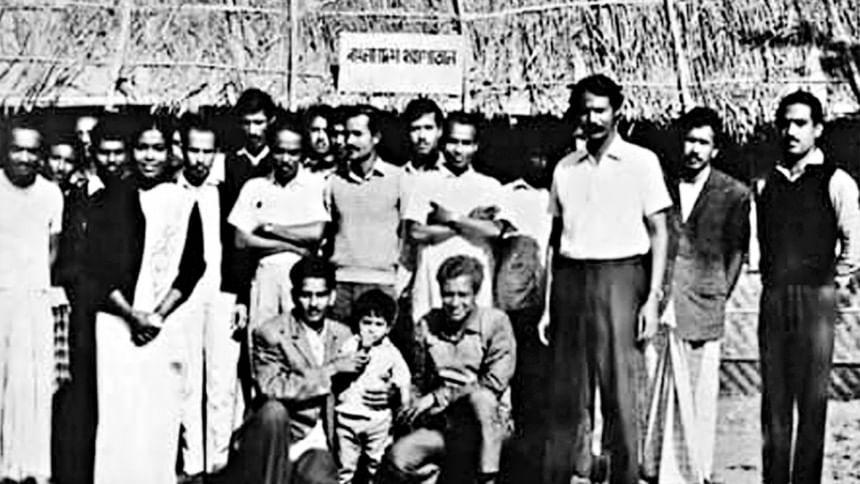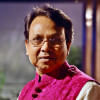The legacy of Zafrullah Chowdhury
The legacy of Zafrullah Chowdhury

Everyone employed at the hospital is involved in farming—from doctors, interns to general employees as well as its founder. It's not their hobby but part of their job description.
The hospital was set up in 1971 in Agartala, India. Khaled Mosharraf, the commander of Sector 2, was operating in this area. Named "Bangladesh Field Hospital", the 480-bed hospital was founded to treat wounded freedom fighters.
Among those who established this field hospital were Zafrullah Chowdhury and MA Mobin, the only cardiac surgeon in the entirety of Pakistan. A group of volunteers were trained as paramedics, one of whom was Sultana Kamal, now an eminent human rights defender.
In 1972, when the founders tried to replicate their wartime endeavour in the newly independent country, the government had objected to its name. Irritated, Zafrullah went to the secretariat to meet President Bangabandhu Sheikh Mujibur Rahman.
"Mujib bhai, [they] are not allowing us to build Bangladesh Field Hospital," he complained to Bangabandhu.
"If the name contains 'Bangladesh,' it sounds like a government hospital," Bangabandhu explained. "Find another beautiful name for the hospital."
After much deliberation, Bangabandhu offered him a new option. "You come up with three names, and I will come up with three. We will choose the best one through discussion," he told Zafrullah.
In their next meeting, Zafrullah was reading out his list: "Bangladesh Field Hospital, Gonoshasthaya Kendra..." Bangabandhu abruptly interrupted him, saying "Gonoshasthaya Kendra is a beautiful name. It will be the name of the hospital. Ganasasthtya Kendra will not only provide treatment, but it will also have to work on health, agriculture and education."
Zohra Begum, MA Rab, a joint secretary, and Lutfor Rahman donated five acres of land from their family properties in Savar for the hospital, while Bangabandhu arranged a further 23 acres of land. The hospital, now named Gonoshasthaya Kendra (GK), began its journey in 1972.
***
In GK, Zafrullah Chowdhury shattered the fixed notions of what women could or couldn't do. He engaged women in unconventional works, employing them as electricians, carpenters, welders, etc. In 1982, many of GK's large truck drivers were women. The hospital currently employs 2,500 people, 40 percent of whom are women.
In its early days, GK introduced a health insurance system. Its Dhaka branches charge patients only Tk 200 for delivery, while its caesarean section costs around Tk 12,000-14,000, without any additional charges in the name of doctors' fee, medicine and pathological tests. Unlike private hospitals, GK always encourages its pregnant patients to undergo normal delivery, unless her medical condition requires otherwise. The cost of pathological tests is half of that charged by an average private hospital. In 1981, GK introduced "Gonoshasthaya Pharmaceutical", which still provides drugs that are far less expensive than those marketed by private pharmaceuticals.
After Savar, Gonoshasthaya Nagar Hospital was built in Mirpur road, Dhaka. In addition, GK operates about 50 health centres in rural and suburban areas of the country.
***
Physically Zafrullah is not well. Both his kidneys are almost non-functional. He needs to go through kidney dialysis three days a week. Anyone who has not gone through it cannot understand how expensive the procedure is. The number of patients undergoing kidney dialysis in GK is nearly twice that in all private and public hospitals combined.
Gonoshasthaya Nagar Hospital has a 100-bed advanced kidney dialysis centre. Even India doesn't have such a large kidney dialysis facility. It is the largest of its kind in South Asia, but the cost is unbelievably low. In Bangladesh, the cost of the treatment generally varies from Tk 7,000-8,000, minus doctors' fee and cost of medicine. GK deals with about 250 such patients every day, 10-12 percent of whom get their treatment for free. Twenty-percent patients pay only Tk 800, while the maximum fee is Tk 2,500—which includes all other additional fees.
***
Bangladesh's drug market used to be dependent on import and controlled by multinational companies. Zafrullah approached Bangabandhu about the need to build a local pharmaceutical industry. His suggestion that drugs should be imported from socialist countries was heeded by Bangabandhu.
He persuaded President Ziaur Rahman to follow a similar policy. Ziaur Rahman wanted Zafrullah to join his cabinet and work on the drug policy. Zafrullah declined the offer in a four-page letter, citing the presence of an anti-liberation politician in Zia's cabinet. In 1982, he persuaded Ershad to adopt a drug policy, which banned the import of thousands of unnecessary drugs.
The boom that Bangladesh's pharmaceutical industry has since witnessed was a direct result of that drug policy. Bangladesh now exports drugs, in addition to meeting 95 percent of local demands.
***
Zafarullah Chowdhury has won many national and international awards including the Ramon Magsaysay award. Although he lives a very simple life himself, he has always been very hard-working. He always did what he thought was best for people and never thought of the consequences of his activities. Gonoshasthaya Kendra is not a state-of-the-art hospital but it provides treatment to the poor at the lowest possible cost.
Zafarullah formed Bangladesh Medical Association in London towards the beginning of our War of Independence. In April 1971, during a rally at Hyde Park, he tore apart his Pakistani passport and burnt it, thus becoming a stateless citizen.
There's another interesting incident I want to mention here. In 1996 when Sheikh Hasina was the prime minister of the country, her husband Wajed Mia retired from the Atomic Energy Commission as its chairman. The prime minister did not extend the tenure of his chairmanship, as he might have expected. So Wajed met with Zafarullah and expressed his willingness to join Gonoshasthaya Kendra. The only barrier to his joining the organisation was smoking. Wajed was a chain-smoker. So Wajed quit smoking within one month and joined Gonoshasthaya Kendra as its Science Adviser.
***
Zafarullah Chowdhury had made some inaccurate statements recently. Although he apologised for it later in a press conference, a sedition case was filed against him. Following this case, several others were also filed, one after another, on charges of land grabbing, extortion, stealing fruits and fish, etc. against him.
Even his worst enemies won't be able to raise allegations of dishonesty against him. He has lived a very simple life even though he had all the opportunities to live a lavish one. Zafarullah, who played a significant role in our Liberation War is now accused of treason, theft, land grabbing and extortion.
Shaheed Janani Jahanara Imam in her monumental book on the liberation war, "Ekattorer Dinguli" (Days of Seventy One), wrote of Zafrullah:
"Zafrullah Chowdhury and MA Mobin have become familiar faces. Both of them studied FRCS in England. After having completed their MBBS degree from Dhaka Medical College and studied inexhaustibly for four years in Britain, when they were just a week away from their final exam, the war of liberation began in Bangladesh.
These two boys quit their education and partook in the Bangladesh movement. They renounced their Pakistani citizenship. Having obtained an Indian travel permit, they got aboard a Delhi-bound flight to reach the battlefield through Calcutta. The plane belonged to Syrian Airlines. It was delayed for five hours in an airport in Damascus. All passengers, except those two, got off the plane. Thank heavens, they didn't.
A Pakistani colonel was at the airport to detain their two fugitive citizens. But you can't detain someone from a plane because it was traditionally considered an international zone.
Officials of Syrian Airport in Damascus later told them that the plane was delayed for five hours just because of them. They reached the battlefield in late May through such dangers."
***
If those who run an institution are involved in politics, the institution suffers, one example being Proshika. What would happen to GK, which was born out of the Liberation War? One can disagree with Zafrullah and, thus, can criticise him. But that GK, as an institution, has to suffer because of such disagreements is unwarranted for the sake of public interest.
Golam Mortoza is a journalist
The article was translated from Bengali to English by Nazmul Ahasan and Naznin Tithi



0 Comments:
Post a Comment